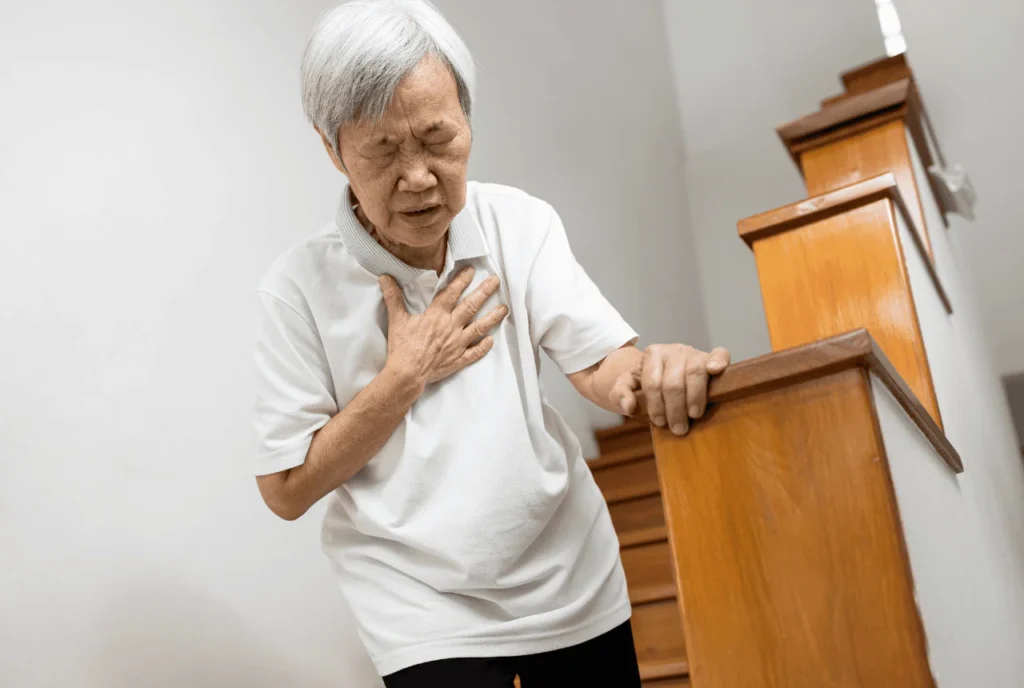5 Accurate Signs of Unhealthy Heart You Shouldn’t Ignore
Introduction
Heart disease remains one of the leading health concerns across the globe, affecting millions of men and women alike. Despite advancements in medical care, heart problems continue to take a significant toll on health. Recognizing the signs of an unhealthy heart early is crucial to preventing complications and ensuring timely medical intervention. While no single symptom should be ignored, it’s essential to pay attention to persistent or recurring signs, which can indicate serious heart conditions.
In this blog post, we will explore the five key signs of unhealthy heart that should never be overlooked. By understanding these symptoms, you can take proactive steps toward better heart health and seek medical guidance promptly. If you experience any of these signs, don’t hesitate to consult with healthcare professionals for an evaluation.
Understanding the Signs of Unhealthy Heart
Heart disease is a general term used to describe a variety of heart-related problems, such as coronary artery disease, hypertension, heart failure, and arrhythmia. It’s important to note that the signs of an unhealthy heart are not always immediately obvious. In fact, many individuals may experience symptoms that are mild or easily mistaken for other less serious conditions, which is why they are often ignored.
Early detection of heart disease can make a significant difference in treatment outcomes, as the sooner you catch the problem, the better the chances of managing it. Heart attacks can sometimes be silent, showing no immediate warning signs, which is why it’s so important to remain vigilant.
Many people tend to overlook minor discomforts, thinking they are insignificant or unrelated to the heart. However, it’s essential to listen to your body and seek medical advice if you experience persistent symptoms. Early intervention could prevent further complications like stroke or heart failure.
5 Accurate Signs of Unhealthy Heart
1. Chest Discomfort or Pain (Angina)

Chest discomfort or pain, medically known as angina, is a common sign of heart-related problems. It occurs when the heart is not getting enough oxygen due to blocked or narrowed arteries. This discomfort can feel like pressure, tightness, squeezing, or even burning in the chest area.
- How it feels: Often described as a heavy sensation in the chest, angina can sometimes spread to the shoulders, arms, back, or jaw.
- Duration: The discomfort may last for a few minutes and can occur during physical activity or even rest.
- When to worry: Unlike minor muscle pain or acid reflux, chest discomfort related to the heart usually doesn’t go away quickly and may recur. If the pain is persistent or lasts longer than a few minutes, you should seek immediate medical attention.
It is important to note that not all chest pain is heart-related. Brief, localized pain due to muscle strain or acid reflux is less likely to be heart-related. However, any persistent or unexplained chest discomfort should be evaluated promptly by a healthcare professional.
2. Shortness of Breath

Shortness of breath can be a significant indicator of heart failure, which occurs when the heart is unable to pump blood effectively. In this case, fluid starts accumulating in the lungs, causing difficulty breathing.
- How it happens: As the heart struggles to pump blood efficiently, fluid builds up in the lungs, leading to breathing difficulties and a feeling of being unable to catch your breath.
- When it occurs: Shortness of breath may occur during physical activity, at rest, or even while lying flat. You may also find yourself waking up in the middle of the night feeling short of breath.
- Other signs: You may need to sit upright to breathe more easily, which is often seen in patients with heart failure.
Shortness of breath can also be linked to lung disease, but when accompanied by other signs like swelling in the legs or chest pain, it may indicate a heart issue. If you experience sudden or severe shortness of breath, particularly if it’s affecting your ability to sleep or perform daily activities, seek medical attention immediately.
3. Swelling in the Legs, Ankles, or Feet (Edema)

Edema, or swelling in the lower extremities, is another sign of poor heart function. This swelling occurs when blood circulation is poor, often due to heart disease.
- How it happens: When the heart doesn’t pump effectively, blood circulation slows down, and fluid builds up in the tissues, particularly in the legs, ankles, and feet.
- Signs to watch for: The swelling may be gradual and get worse as the day progresses. If you press on the swollen area, an indentation may remain (known as pitting edema).
- When to worry: Persistent swelling, especially in both legs or feet, should be evaluated by a healthcare provider. This can signal issues such as heart failure, kidney problems, or vein disease.
While occasional swelling from standing or sitting too long can be normal, persistent or increasing swelling in the lower limbs, especially when accompanied by other symptoms like fatigue or shortness of breath, requires prompt evaluation by a doctor.
4. Palpitations or Irregular Heartbeat

Palpitations refer to an irregular or noticeably strong heartbeat, often felt in the chest, throat, or neck. These can be fluttering, racing, or pounding sensations.
- What they feel like: Occasional palpitations are usually caused by factors like stress, caffeine, or exercise. However, if they occur frequently or last for extended periods, it may indicate an underlying heart issue like arrhythmia (irregular heartbeat).
- When to worry: If palpitations are accompanied by dizziness, lightheadedness, or fainting, it may suggest a serious condition, such as a stroke or heart failure, and should be addressed immediately.
An irregular heartbeat can increase the risk of blood clots or stroke if left untreated. If you experience palpitations often, it’s essential to consult a healthcare provider for a thorough evaluation.
5. Unusual Fatigue or Weakness

Unexplained fatigue is a frequent symptom of an unhealthy heart, particularly in individuals with heart failure. If the heart struggles to pump blood effectively, the body’s organs and tissues may not receive adequate oxygen, causing tiredness and weakness.
- What it feels like: Persistent fatigue that worsens over time or after minimal physical activity, such as climbing stairs or walking short distances.
- Who’s affected: Women, in particular, may experience more pronounced fatigue as a sign of heart disease compared to men.
- When to worry: Fatigue that is unexplained, persistent, and out of proportion to usual levels of tiredness should not be ignored.
If you feel unusually tired after everyday activities or need more rest than normal, this could signal that your heart is struggling to perform at its optimal capacity. Early intervention is crucial for improving quality of life and managing heart health.
Other Potential Signs and Symptoms
In addition to the key signs mentioned, other symptoms may indicate heart problems, including:
- Dizziness or lightheadedness
- Nausea or vomiting
- Pain that spreads to the arm, neck, or jaw
- Sweating and cold sweats
- Digestive issues or indigestion
It’s essential to pay attention to your body and seek timely medical advice if you experience any of these signs, especially if they are recurrent or severe.
When to Seek Medical Attention
If you experience any of the signs mentioned above, it’s essential to seek immediate medical attention. Severe chest pain, loss of consciousness, or progressive shortness of breath are signs that require urgent care. Apollo Clinic Silchar offers expert consultations for heart health.
Lifestyle Changes for a Healthy Heart
To prevent heart disease and manage existing conditions, incorporate the following heart-healthy habits:
- A diet rich in fruits, vegetables, and whole grains
- Reduced sodium intake to lower blood pressure
- Regular exercise: Aim for at least 150 minutes of moderate-intensity activity weekly
- Maintain a healthy weight and stay active
- Prioritize 7-8 hours of sleep per night
- Quit smoking and limit alcohol intake
Healthy lifestyle changes are vital in reducing the risk of heart disease and improving overall well-being.
Conclusion
Recognizing the signs of an unhealthy heart is the first step toward better cardiovascular health. Don’t ignore warning signs like chest pain, shortness of breath, or unusual fatigue. Consult a healthcare professional for personalized advice and take proactive measures to protect your heart health today.


